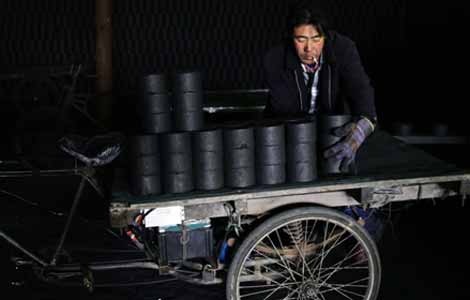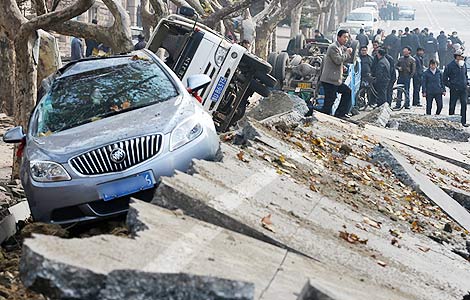China's setup of air zone legitimate, conducive to regional peace
Updated: 2013-11-24 17:13
(Xinhua)
|
||||||||
BEIJING -- The Chinese government on Saturday issued a statement on establishing the East China Sea Air Defense Identification Zone.
The move, however, provoked anger in Japan, which accused China of "one-sidedly" setting up the zone that covers the disputed Diaoyu islands, and described the zone as "totally unacceptable."
Having no intention to generate tensions, China's move is to uphold its own legitimate rights and safeguard what has always been its own.
As pointed out by many military experts, the establishment of the air zone is a necessary, rightful and totally legitimate measure taken by China in protecting its sovereignty and providing air security.
Actually, the establishment of the air zone is not only perfectly legitimate, but also in line with current international practice.
An air defense identification zone is established by a maritime nation to guard against potential air threats. Since the 1950s, more than 20 countries, including the United States, Australia, Germany and Japan itself, have successively established such zones.
China's Defense Ministry spokesman Yang Yujun has stressed that the zone "has no particular target and will not affect the freedom of flight in relevant airspace."
Since the zone is both in line with the UN Charter and in respect of relevant international laws and customs, China has every right to decide on its own whether to set up such zones, without getting permission from any other countries.
And Japan should know better than to continue its overreaction and learn to accept the "unacceptable."
On Saturday, US Secretary of State John Kerry also voiced concerns over the zone, fearing it might "constitute an attempt to change the status quo in the East China Sea," and increase tensions and risks in the region.
But is it China to blame for upsetting the status quo over the islands?
The status quo of the Diaoyu islands, which had lasted for decades under the principle of shelving the dispute, has already been broken more than one year ago when the Japanese government launched a unilateral move to "purchase" and "nationalize" the islands.
The farce of "buying" the Chinese territories is a sign of Japan's expanding nationalism and growing belligerence, which should be identified as the real danger in the region.
Instead of "increasing tensions and creating risks," the setup of China's air zone could contribute much to regional peace and security by curbing the increasing rampancy of Japan's right-wing forces, as well as the continuous and dangerous provocations of Japanese politicians, which even Washington should be vigilant against.
The White House has repeatedly said that the United States does not take a position on territorial disputes between China and Japan, a neutral stance the Chinese government has appreciated.
But keeping a blind eye to the dangerous tendency in Japan could prove to be risky and might even jeopardize the US national interests.
- Air defense identification zone a strategic decision: experts
- China maps out its first air defense ID zone
- Air defense zone accords with intl practices: experts
- Spokesman responds to air defense zone questions
- Announcement of the Aircraft Identification Rules for the East China Sea Air Defense Identification Zone of the People's Republic of China
- Statement by the Government of the People's Republic of China on Establishing the East China Sea Air Defense Identification Zone

 Iran nuclear talks aren't over yet- US official
Iran nuclear talks aren't over yet- US official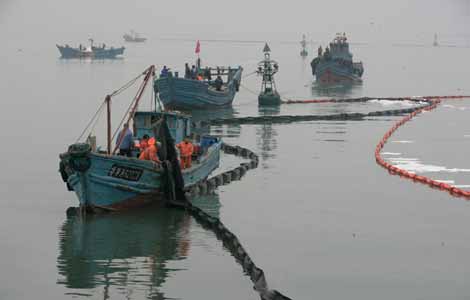
 Ocean cleaned after oil leak and blast killed 48
Ocean cleaned after oil leak and blast killed 48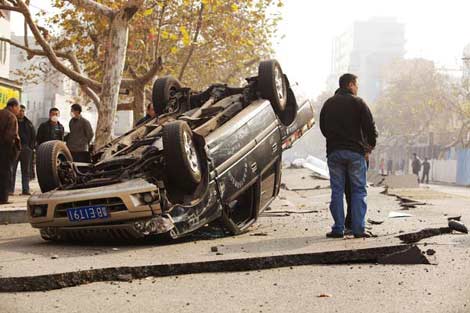
 47 die in oil pipe blast
47 die in oil pipe blast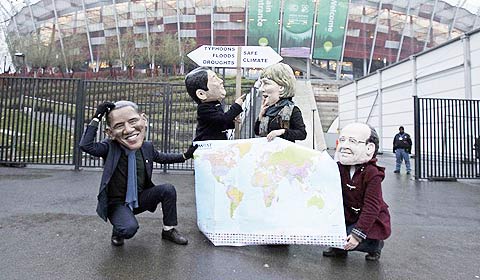
 UN climate talks reach deal
UN climate talks reach deal
 Feel-good stories ask questions of us all
Feel-good stories ask questions of us all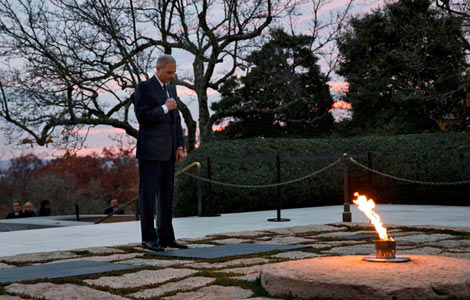
 US marks the 50th anniversary of JFK's assassination
US marks the 50th anniversary of JFK's assassination
 No holds barred training for elite force
No holds barred training for elite force
 Chinese medical teams reach Philippines
Chinese medical teams reach Philippines
Most Viewed
Editor's Picks

|

|

|

|

|

|
Today's Top News
Dalian to start 72-hour visa-free stays
Obama calls for bipartisan efforts to rev up economy
UN climate talks reach deal
China maps out air defense ID zone
Iran nuclear talks aren't over yet
Nokia has 'phab' plan for Chinese mobile market
Newtown investigation report to be released
PetroChina poised for US expansion
US Weekly

|

|


